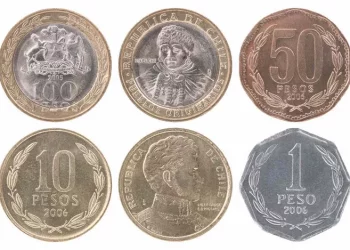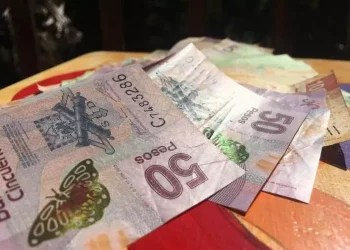Open position is a professional term of foreign exchange trading, I believe that foreign exchange investment veterans must understand, but foreign exchange investors do not necessarily understand.
So today, Xiaobian is going to introduce what is foreign exchange explosion. I hope investors who have just started to speculate foreign exchange can have more understanding of foreign exchange explosion.
In foreign exchange trading, there is always the risk that one mistake will lead to a situation of liquidation.
For investors, a liquidation is the worst case scenario in foreign exchange trading, because once the liquidation, investors will lose their capital and all the principal will be lost.
First, what is the warehouse explosion?
What were the signals before the blast?
A blowout is a trade in which the investor’s loss is greater than the funds available in the account and the client’s equity in the investor’s margin account is negative.
1, set of single – lock single – cut single 2 times the single amount of backhand – burst investors’ list is set, is another headache for investors.
If the investor’s multiple orders are set at the same time, investors are vulnerable to the interference of price fluctuations, blindly cut the list, and then double position backhand chase single.
It’s easy for investors to get burned out. It’s important for investors to control their positions.
2. Short – Long – lock – out Many investors start out trading on the short side and then move to the long side, holding positions for up to 15 trading days.
This mode is also very easy to cause the detonation mode.
Although the foreign exchange investment market is accompanied by great risks, investors should be cautious and accumulate more experience and analyze more data in the investment. I believe it will be of great help to everyone in the future investment profits.
Two, foreign exchange master after exposure to the position will do?
Reading the headline, battle-hardened you may have a strong desire to complain.
“Blowout” is the word traders fear most.
But this year, of all times, the word has come up a lot.
According to the Google Index, searches for the term “blowout” spiked this year, especially in March and April.
Many people sigh, “burst warehouse always have, this year especially many”.
In the magic year of 2020, when even Warren Buffett says “live long”, the market has turned repeatedly. It is true that only a few people in the market can accurately buy the bottom and escape the top like Bill Ackman.
More people are like this: in January, they escaped the “black swan” of the US-Iran conflict, but in February, they could not escape the spreading epidemic.
In March, the gold market broke, but it was caught in the stock market, and it was hit by the negative oil price in April.
Although said, people in the river’s lake walk, where there is not a knife.
But it is a painful experience that every trader wishes he could avoid.
01 More painful than “burst” is…….
In fact, the root cause of the pain, whether it is a blowout or a loss, is simply that the actual returns (financial gains, the recognition of others) of the traders are much lower than expected and even less than the costs (time costs, trading expenses, etc.).
Some people describe the feeling of the first time to go out of stock: the moment you go out of stock, your mind will feel blank, it is a feeling of relief.
Lose enough, fast enough, and your brain will run out of oxygen and shut down.
The crushing powerlessness of the blowout creates enough despair to send the blood rushing down instead of to your brain.
The moment of liquidation is “happy”, because it directly brings substantial economic losses;
But even more painful, it raises questions about their trading systems and destroys confidence.
Justin Bennett, founder of Daily Price Action and a prominent trader, notes that 63% of traders do two “dangerous” things after a big loss. One is they rush back in, eager to recover their losses and prove their trading system is correct.
The second is to have a fear of the market and trading and decide not to trade that product again.
The first is what Munger calls the “dispossessed super-reactive tendency,” in which gamblers lose more and more in their eagerness to level the playing field. This reluctance to concede is one of the main reasons why gamblers lose everything.
The second is the classic “snakebite effect”, in which losses are followed by extreme caution.
Either way, the result is an erosion of will and, ultimately, a loss of hope for success.
The negative effects of this state may outweigh the loss of money.
“The difference between systematic traders and repressed traders is that those who are repressed not only lose money, but also hope,” Steenbarger writes in Reshaping the Psychology of Securities Trading.
Systematic traders can continue to trade methodically because they have put their loss expectations into the system;
Depressed traders who don’t anticipate and deal with losses lose sight of the future and lose all motivation.”
02 master must “burst warehouse” pain?
At this point, one might think that the author has “stigmatised” the bust too much, because a bit of pain can be beneficial, at least because it lets you know what’s wrong with your trading system: “You can’t really understand trading without experiencing the pain of a bust.”
“It’s hard to become a good trader without losing everything once.”
That seems plausible, and countless financial giants do have shady trading records: In 1982, Bridgewater’s seventh year, for example, Dario nearly blew up by betting badly on a U.S. stock market crash.
He was predicting a debt crisis in Latin America that would drag down U.S. stocks.
He had guessed the beginning but not the end — the Fed‘s surprise interest rate cut, which saved the bulls but cost the desperate Dario a fortune.
In 1987, Soros fell victim to Black Monday.
He estimated that the Japanese stock market was about to collapse, so he used Quantum to short stocks in Tokyo and buy S&P futures contracts in New York.
But on Black Monday, U.S. stocks crashed and recorded their biggest one-day drop in history;
Meanwhile, with the support of the Japanese government, the Japanese stock market avoided a rout — Soros suffered a two-front rout, losing more than $350 million before and after, and wiping out his annual profits in just a few days.
But bigwigs are bigwigs because they are rarely planted in the same place twice.
This “near-bankruptcy experience gave me a sense of awe that balanced my activism,” Dario recalls.
After the big losses on Black Monday, Soros retreated across the board, gradually selling all S&P futures contracts and sticking more closely to his risk management principles.
Most people, however, make the same mistakes over and over again. If you look at the trading logs from years ago, you may find that you are still making the same trading mistakes.
Why is that?
According to “Reinventing the Psychology of Securities Trading”, this may be because the mechanistic, repetitive trading patterns deprive traders of free will.
For example, a trader who has developed a way of trading during a long bull market has always made money by buying up on the way down.
So he decided on this model and even applied it to a completely different market. It proved to be no longer effective, but the trader kept doing the only thing he knew how to do: “He continued to add to his position when the market was going down, only to get caught in the crash.”
03 Managing expectations + “Explosion-proof thinking” Recognize the problem, then we should focus on finding a solution.
The problem with many traders is not that they have a problem, but that they only notice the problem, which causes them to “automatically ignore” solutions that already exist.
As mentioned above, the bust is painful because people’s actual returns don’t live up to expectations.
Actual returns are uncontrollable variables, so we can start by controlling expectations.
This includes two aspects: first, managing market expectations (which requires a correct understanding of the market);
The second is to evaluate yourself (this requires a correct understanding of yourself).
¢Ù After the market expectations burst, many people will be confined to fear not to open positions.
In fact, the most fundamental form of market performance is nothing more than these: price performance: rise – fall.
Do the actions of a seller: buy – sell.
The change of capital structure: win – lose.
When you understand the nature of the market and feel that it is not so mysterious, your fear of it will disappear;
At the same time, trading confidence is built.
To evaluate yourself correctly, you can learn to observe yourself and look for patterns.
For example, you can summarize what characteristics you had when you were profitable and what repeat factors were involved in failed trades.
This may require a detailed trading log that can be reviewed every weekend.
The journal should include the trades you made, the principles used in the trades, profit targets, stop-loss parameters, the frame of mind in which the trades were made, and the results of the trades.
Each week you should grade yourself more on how well you completed your trading plan and do a review of your trading successes and failures.
The goal is to create a feedback loop so that your trading can continue to improve.
It is important to note that such a journal is not to record your gains or losses, but to keep you on track with your trading plan.
Sure trades can lose money, and impulsive trades can earn money. Since you can’t control whether your next trade will turn out to be profitable, what you can do is evaluate the likelihood of success or failure through research and use the results to plan.
This practice can not only make people reflect on their trading mistakes, avoid repeating mistakes;
You can also urge yourself to stay true to the trading plan.
The last thing I have to mention is the explosion-proof mentality, which will be the premise of trading open positions.
Buffett once gave an example: Suppose you were given a gun that held a thousand bullets, but only one was loaded.
Put the gun to your temple and pull the trigger, which means you have a one in a thousand chance of being shot.
How much do you want to do this?
Ten million?
A hundred million?
A billion?
Buffett’s answer: No amount of money.
That’s because you can’t calculate the probability, the expected value — in case you hit a real bullet, it doesn’t matter how much money you have.
After all, the great secret of investing is to survive. It’s not the winner who takes all, it’s the last who takes all.
Conclusion: Well, no more gossip, today here with their own light experience, to encourage, those who may now be in the loss stage, and those who want to do foreign exchange, but hesitate to do friends, no matter how many brilliant performance you have before, must not overestimate their own ability, do not systematically learn foreign exchange is definitely not.




























